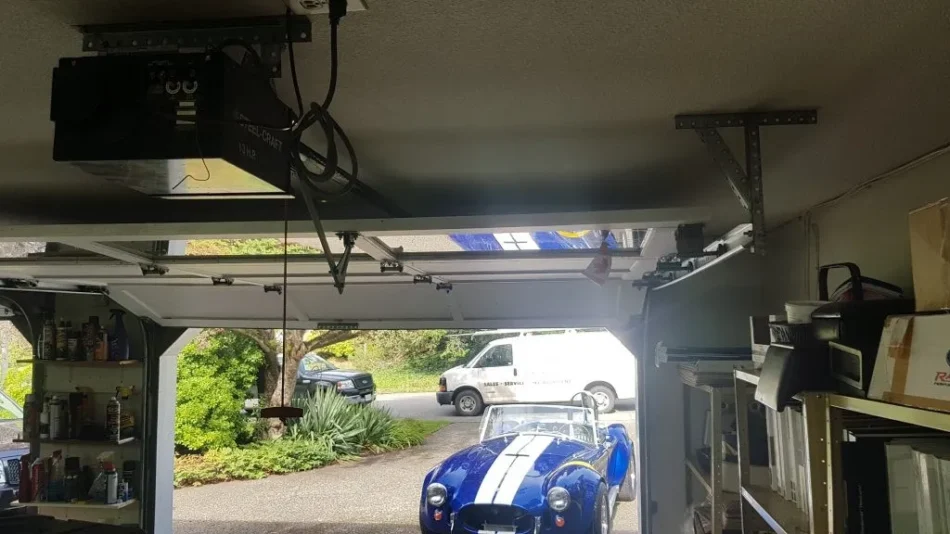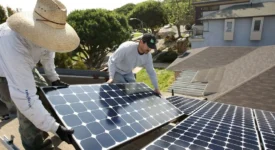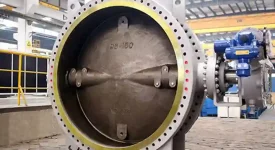Garage door openers have become an integral part of our daily lives, offering convenience and security as we enter and exit our homes. However, they are not immune to the effects of environmental factors, particularly low temperatures. In regions where winter brings frigid weather, understanding the impact of low temperatures on garage door openers is essential for proper maintenance and operation. In this article, we’ll explore how cold temperatures can affect garage door openers and what steps you can take to mitigate potential issues.
Understanding How Cold Temperatures Affect Garage Door Openers
- Slower Operation: One of the most noticeable effects of cold weather on garage door openers is slower operation. Cold temperatures can cause the lubricants and grease within the opener to thicken, leading to increased friction in the moving parts. This can result in a slower and less smooth door operation.
- Reduced Battery Performance: Many garage door openers have backup battery systems that allow them to function during power outages. Cold temperatures can affect the performance of these batteries, causing them to lose capacity or drain more quickly. As a result, your garage door opener may not operate as long on backup power during a winter power outage.
- Decreased Spring Flexibility: Garage door opener springs play a crucial role in balancing the weight of the garage door. Cold temperatures can make these springs less flexible and more prone to breakage. If a spring snaps during cold weather, it can cause the door to become unbalanced and potentially dangerous.
- Safety Sensor Interference: Garage door openers are equipped with safety sensors that detect obstacles in the door’s path and prevent it from closing on them. Cold weather can interfere with the sensors’ performance, causing false positives or negatives. This can lead to the door not closing properly or reversing unexpectedly.
- Opener Motor Strain: The motor in a garage door opener works harder in cold weather due to increased resistance from thickened lubricants and the door’s reduced flexibility. Over time, this additional strain can lead to motor wear and potentially shorten its lifespan.
- Frozen Components: Extremely cold temperatures can cause some components of the garage door opener, such as cables and pulleys, to freeze. When these components freeze, they may not function correctly, resulting in door malfunction.
Tips for Mitigating the Impact of Cold Temperatures on Garage Door Openers
To ensure that your garage door opener operates smoothly and reliably during the winter months, consider implementing these tips:
- Lubricate Moving Parts: Regularly lubricate the moving parts of your garage door opener with a lubricant designed for cold weather use. This helps reduce friction and ensures that the opener functions smoothly. Be sure to follow the manufacturer’s recommendations for lubrication.
- Inspect and Maintain Springs: Have your garage door opener springs inspected and maintained by a professional before the cold weather sets in. They can adjust the tension and ensure that the springs are in good condition. This reduces the risk of spring breakage during winter.
- Install a Battery Warmer: If your garage door opener has a backup battery system, consider installing a battery warmer. This device helps keep the battery at an optimal temperature, ensuring it retains its capacity and performs well during cold weather.
- Clear Snow and Ice: Keep the area around your garage door clear of snow and ice. Accumulated snow and ice can interfere with the door’s operation and potentially damage components. Use a snow shovel or ice melt to maintain a clear path.
- Regularly Test Safety Sensors: Periodically test the safety sensors on your garage door opener to ensure they are functioning correctly. If you notice any issues, contact a technician for adjustments or repairs.
- Use a Heated Garage: If possible, keep your garage heated during extremely cold weather. A heated garage will help maintain a more moderate temperature, reducing the impact of cold on the opener and other components.
- Schedule Professional Maintenance: Consider scheduling professional maintenance for your garage door opener before the winter season. A qualified technician can inspect, lubricate, and make any necessary adjustments to ensure that the opener is in optimal condition for cold weather.
- Insulate the Garage: Insulating your garage can help maintain a more stable temperature, reducing the severity of temperature fluctuations that affect the opener and other components.
- Upgrade to a Cold-Weather Opener: If you live in an area with harsh winters, you may want to consider investing in a garage door opener specifically designed for cold weather use. These openers typically include features such as insulated components and heaters to maintain optimal performance in freezing temperatures.
Signs of Cold-Related Issues with Garage Door Openers
To ensure the safety and functionality of your garage door opener during cold weather, it’s essential to be aware of signs that may indicate cold-related problems. If you notice any of the following issues, it’s a good idea to address them promptly:
- Unusual Noises: Grinding, scraping, or other unusual noises during door operation may indicate increased friction caused by cold weather. Lubricate the moving parts and check for any obstructions.
- Slow Operation: If your garage door opens and closes more slowly than usual in cold weather, it could be due to thickened lubricants. Consider using a cold-weather lubricant and ensure that the door is properly balanced.
- Intermittent Sensor Errors: If the safety sensors of your garage door opener are frequently triggering errors during cold weather, it may be a sign of sensor interference. Check for obstructions or ice buildup near the sensors.
- Difficulty Opening or Closing: If the garage door has difficulty opening or closing during cold weather, it could be due to frozen components or a lack of lubrication. Inspect the door and opener for any visible issues.
- Battery Problems: If your garage door opener relies on a backup battery system, monitor its performance during cold weather. If you notice a significant decrease in battery life, it may be time to consider a battery warmer or replacement.
Conclusion
Cold temperatures can have a noticeable impact on the operation of garage door openers. By understanding how low temperatures affect the opener and implementing appropriate maintenance and mitigation strategies, you can ensure that your garage door remains reliable and functional throughout the winter months. Regular inspections, lubrication, and professional maintenance are key to preventing cold-related issues and prolonging the lifespan of your garage door opener.






